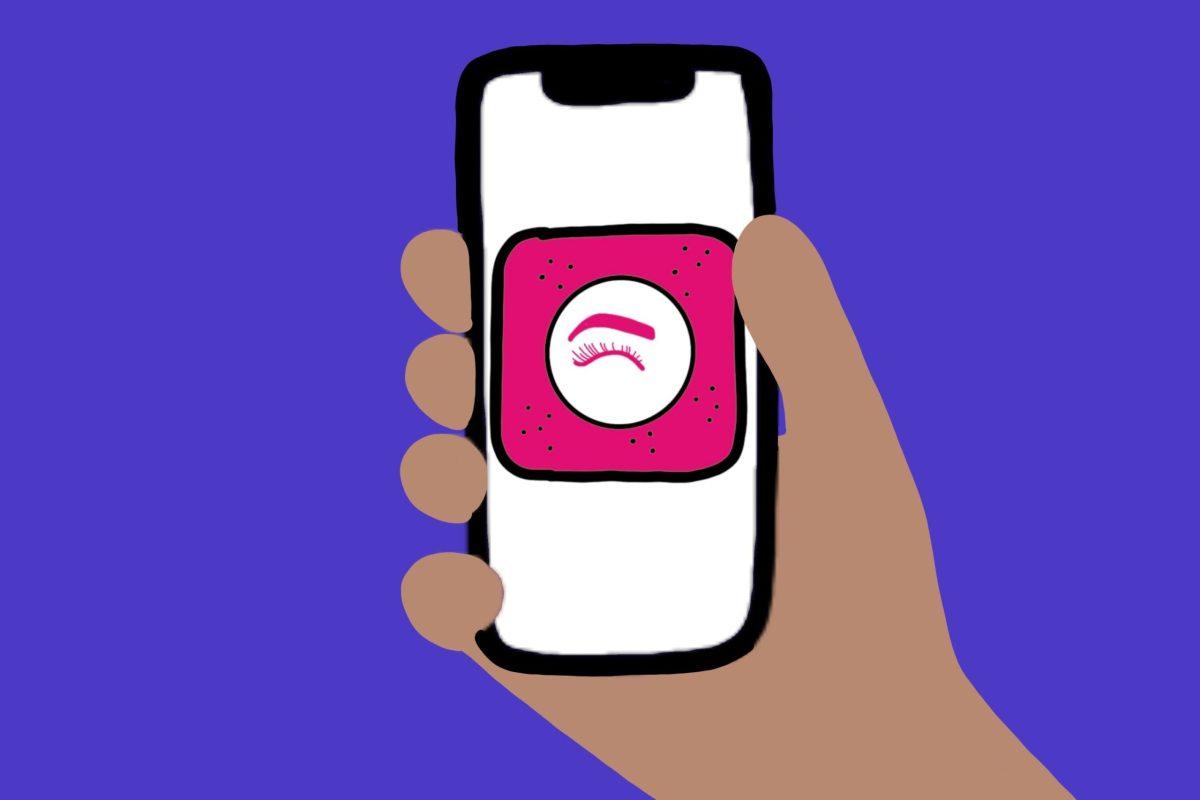Social media filters promote unrealistic beauty standards
Filters on social media apps like Instagram and TikTok are becoming more advanced by the day. With the increased variety and use of filters, or photo effects applied to images, users have the ability to radically change their face.
What began as transforming faces into the image of a cartoon animal on Snapchat in 2015 has evolved into virtual plastic surgery. Users can now opt for slimmer noses, lighter eyes, more voluptuous lips and perfectly sculpted cheekbones.
But this increased use could be problematic, particularly for women, said Phyllis A. Anastasio, Ph.D., professor of psychology.
“Using enhancing filters can increase the gap between what we see as our actual and ideal selves — and that increases dissatisfaction with oneself,” Anastasio wrote in response to written questions from The Hawk.
A leaked internal document from Facebook said that 32% of teen girls disliked their bodies, and among teens who reported having thoughts of self-harm, 6% attributed it to Instagram. In a 2020 survey by American Academy of Facial Plastic and Reconstructive Surgery, 72% of members said their patients wanted to look better for their selfies.
Faith Mendelson ’25 said seeing filters used throughout social media has caused an increased sense of insecurity and inferiority after comparing herself to “drastically edited photos that promoted unrealistic and unattainable beauty standards.”
“Growing up in a world so influenced by social media, specifically seeing so many filtered images at a young and impressionable age, has significantly affected my self-esteem and body image,” Mendelson wrote in response to written questions from The Hawk.
Role models like celebrities may contribute to the unrealistic standards of beauty that have become normalized through these filters, Mendelson said.
“If these people that we put onto a pedestal and idolize as the beauty standard are only the ‘beauty standard’ if they’ve been digitally modified or photoshopped, what does that mean for us and our relationship with the idea of beauty?” Mendelson said.
But not all celebrities support the use of filters and photoshopped images, said Rachael L. Sullivan, Ph.D., assistant professor of communication and media studies, who taught a class, Filtered Images, in the fall of 2021.
“Some students [in my class] wrote about Photoshop and how some celebrities have been accused of Photoshop, like Kourtney Kardashian,” Sullivan said. “Other celebrities try to push back against that, like Demi Lovato [who] wants to claim this authentic image.”
Lovato, who is known for “going against the grain,” vehemently voiced their feelings about the filters on a TikTok post from March 2021, stating via text bubbles, “Unrealistic beauty expectations with these filters got me like: These aren’t my real eyes; My skin is not this smooth; But can I always look like this?; Wait, do I need a smaller nose?!; Thank God I’m realizing this now and I’m sorry for using them w/o realizing how dangerous they were before; Thank God these weren’t around when I was 13, but also, now are teens supposed to learn to accept themselves?”
While filters can be harmful, they are not all negative. For example, they can provide a frame that references a social justice issue or encourages viewers to take action on Capitol Hill. Sullivan said some filters can also be used to express one’s identity.
“[Using filters] can be an act of personal expression that’s valid and important and contributes to culture,” Sullivan said.
Anastasio said using filters comes down to realizing and understanding that many images seen across social media are not realistic.
“Do we understand, instead, that unrealistic images of beauty probably are just that –– filtered and unrealistic?,” Anastasio said. “The damage will be far less for the person who understands this.”






































